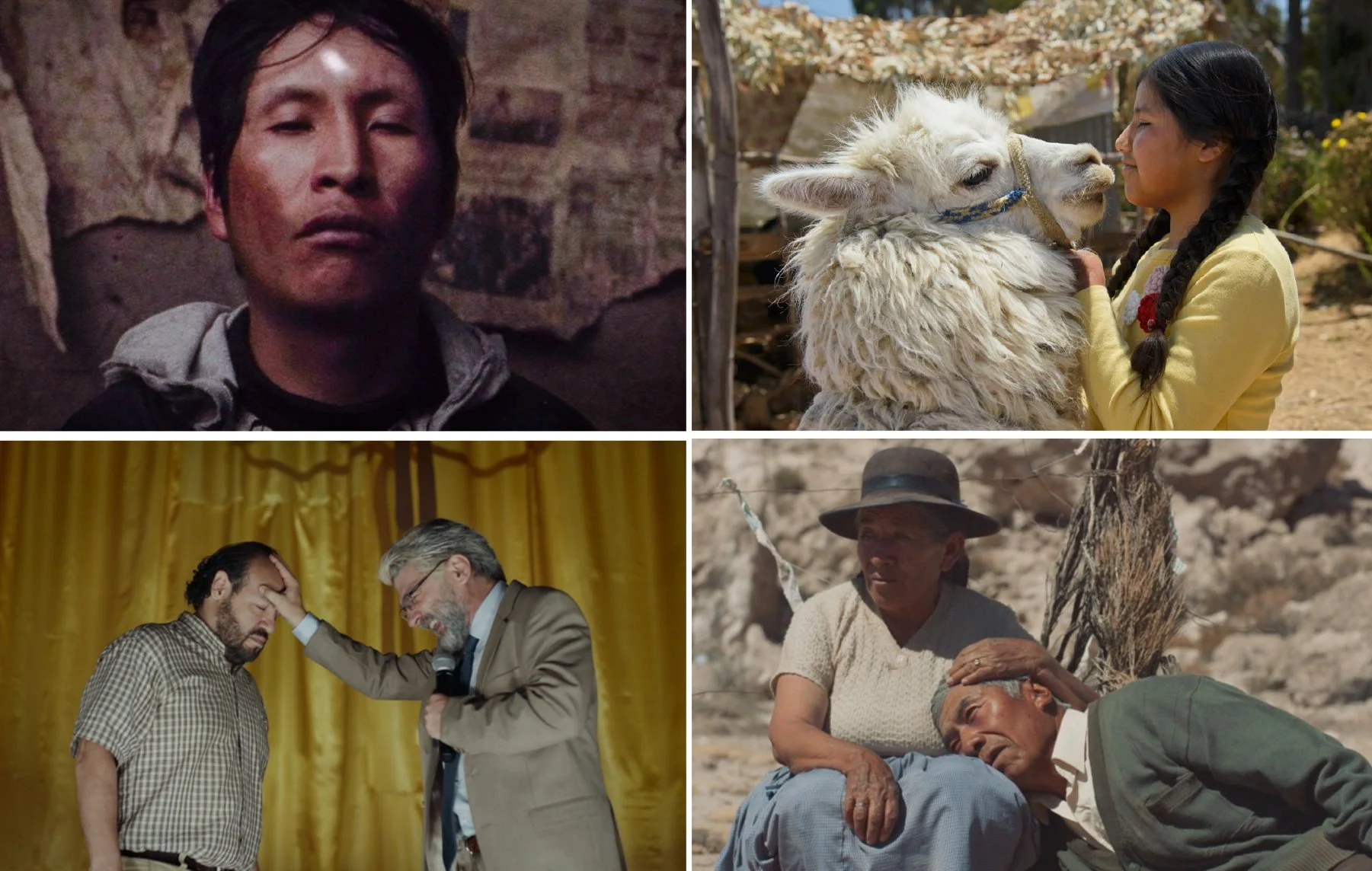By Carlos A. Gutiérrez
This has been a landmark year for Bolivian cinema. Not only have productions from the South American country premiered at some of the world’s most prestigious festivals, but they've won numerous awards, leaving an impressive mark in the international film circuit, cementing the careers of an exciting generating of filmmakers.
The auspicious trend started last September when Kiro Russo’s second feature film The Great Movement / El gran movimiento premiered in the Orizzonti competition at the Venice Film Festival, winning the Special Jury Award. Since then, the film has traveled to numerous international film festivals, having had its U.S. premiere at the New York Film Festival, and is set to see its U.S. theatrical release this August when it opens at Film at Lincoln Center in New York, followed by other cities, by the hand of arthouse independent film distribution company KimStim.
A hypnotic and intriguing journey, The Great Movement tells the story of Elder, a young miner who arrives in the Bolivian capital of La Paz, as he is looking for a job along with his friend. Nevertheless, his health starts to deteriorate. An elderly woman brings him to a mysterious witch doctor to cure him with a series of shamanic rituals that will bring him back to life.
Russo’s feat at the Venice Film Festival was followed by Alejandro Loayza Grisi’s debut feature Utama. The co-production between Bolivia, Uruguay, and France had its world premiere at the Sundance Film Festival in January, where it won the World Cinema Dramatic Grand Jury Prize for best international feature.
Handsomely lens by Bárbara Álvarez (The Headless Woman) and edited by Fernando Epstein (Monos), Utama tells the story of an elderly Quechua couple living in the Bolivian highlands herding llamas. When their everyday life gets threatened by a severe drought, their grandson Clever tries to convince them to move to the city— introducing the dilemma of change and ultimately questioning the meaning of life. The film has been acquired by distribution company Kino Lorber for a North America theatrical release in the second half of 2022.
Last February, Bolivian-born director Natalia López Gallardo won the Silver Bear Jury Prize at the Berlin Film Festival for her debut feature Robe of Gems / Manto de gemas, arguably the top-most prize ever granted for a Bolivian filmmaker at an international film festival. López Gallardo studied film at the Centro de Capacitación Cinematográfica (CCC) in Mexico City and has been living in Mexico for many years. The director, screenwriter, editor, and actress has edited films by Lisandro Alonso, Carlos Reygadas, and Amat Escalante, among other directors, and heads the post-production studio Splendor Omnia.
Set in Mexico’s countryside and starring Nailea Norvind, Antonia Olivares, Aida Roa, and Daniel García, Robe of Gems follows three women whose fates collide when the case of a missing person leads them on a path of pain and redemption.
On target for similar success is The Visitor / El visitante, the fourth feature film by Bolivian director Martín Boulocq, which is having its world premiere in the international competition at the Tribeca Film Festival next week. Set in the city of Cochabamba, the arresting drama tells the story of an ex-convict who makes a modest living by singing at wakes. Humberto’s greatest desire is to rebuild his relationship with his estranged daughter and provide her with a decent life, but the grandparents of the child—wealthy evangelical pastors—are not willing to give up custody. The Visitor ultimately serves as a somber meditation on family relations, class, and the increasing power of evangelism in Latin America.
Other Bolivian filmmakers making waves in the international arena include cinematographer Daniela Cajías, who last year became the first female DP to win Spain’s Goya Award for Schoolgirls and who lensed this year’s Golden Bear winner at the Berlinale, the Spanish film Alcarràs by Carla Simón. Also, Rodrigo Bellott, whose fourth feature film Tu Me Manques, based on his own play, was nominated for Outstanding Film in Limited Release in the GLAAD Media Awards, and was selected as Bolivia’s official Oscar contender.
Additionally, other Bolivian films have successfully toured the international film festival circuit in the past couple of years, including Juan Pablo Richter’s period drama 98 Seconds Without Shadow / 98 segundos sin sombra, which had its world premiere at the Tallin Black Nights Film Festival; Bellot’s horror movie Blood-Red Ox, which played at the Guadalajara Film Festival and the Los Angeles Latino International Film Festival; the indigenous coming of age Sun & Daughter / Cuidando al sol by Catalina Razzini, which recently had its U.S. premiere at the San Francisco Film Festival; the historic drama Chaco by Diego Mondaca, which had its world premiere at the Rotterdam Film Festival; and Compañía by Miguel Hilari, winner of the top prize for Best Medium-Length Film at the Visions du Réel Festival.
All of these recent successes have marked a milestone in Bolivian cinema. The South American country has had a rich film tradition despite its fraught history and intermittent government support. Bolivia played an important role in the New Latin American political and anti-colonial cinema movement of the sixties and seventies particularly through the work of Jorge Sanjinés and the Grupo Ukamau. In the late nineties and early aughts, a multi-generation of directors including Juan Carlos Valdivia, Marcos Loayza, Paolo Agazzi, Julia Vargas-Weise, Violeta Ayala, and Bellott, played a leading role in revitalizing the local cinema, but despite an increased film production the production contexts remained still largely unstable. Hopefully the achievements of the last year will help consolidate the new cinema law that was created in 2018 and reactivate supports that were discontinued during the political upheaval of 2019 and 2020.
Carlos A. Gutiérrez is the cofounding executive director of Cinema Tropical.





